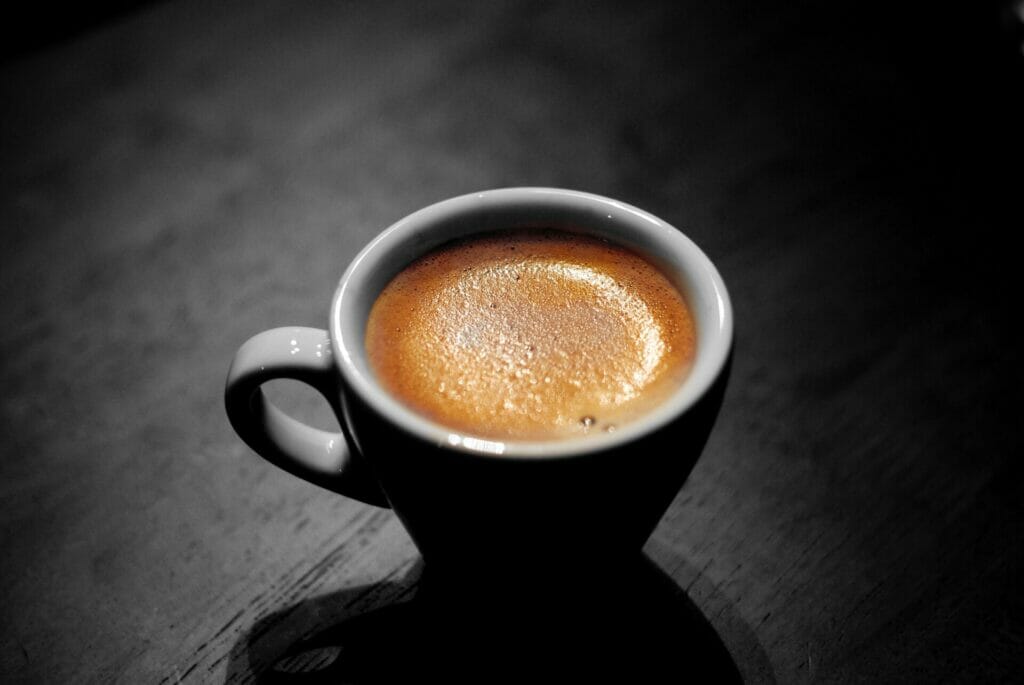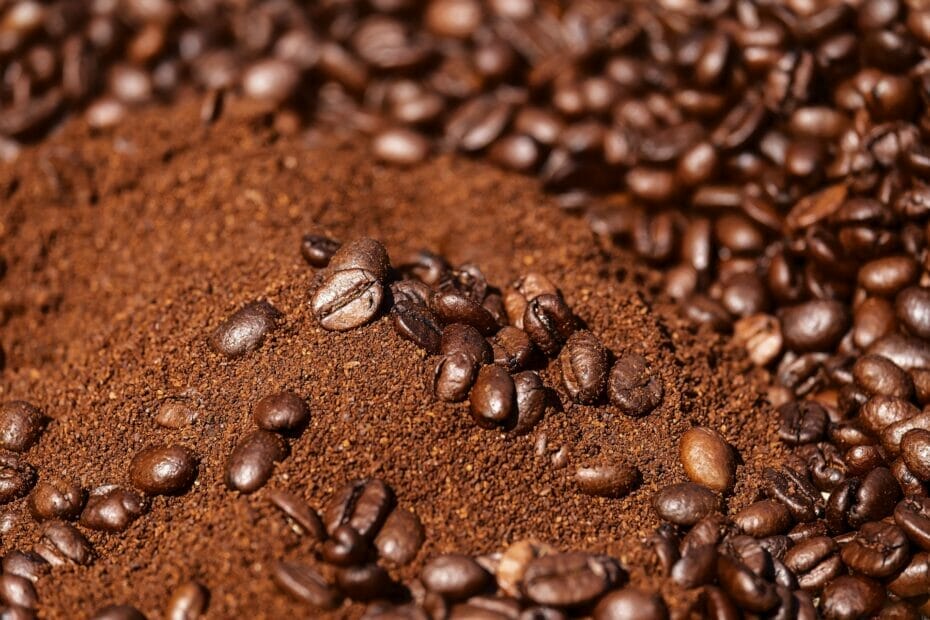Does Coffee Have Carbs?
The answer to the question: “Does Coffee Have Carbs?” is yes, it does contain some carbohydrates. Though coffee itself is generally considered a low-carb drink, it can still contain varying amounts of carbs depending on what ingredients are added.
For instance, if you add cream and sugar to your fancy coffee drinks, this will increase its carb content with each teaspoon supplying up to 4 grams of carbohydrates.
Similarly, espresso shots or flavored varieties such as hazelnut or mocha can also contain carbs from the added flavors or syrups. Drinks obtained from Starbucks and other coffee shops tend to be even higher in carbs than regular coffee as they typically come with flavorings and/or sweeteners such as whipped cream and caramel drizzle.
Moreover, there are “low-carb” alternatives for regular and specialty coffees, including syrup substitutes which don’t contain any sugar or calories. When choosing these products, however, make sure that the nutritional information listed clearly states “0g Net Carbs” on the label.
Overall, the key is to pay attention to what type of additives have been used in your favorite cup of java so that you can determine its exact carb content!

How Many Carbohydrates Are In Coffee?
Wondering how many carbohydrates are in coffee? The answer may surprise you! Most people assume that sweet-tasting delicious coffee is a carbohydrate-free drink, but that’s actually not the case. Depending on the type of coffee you choose, you could be consuming anywhere from 0 to 4 gram of carbohydrates per cup serving.
If you opt for black coffee or espresso shots, then the carb count is close to zero whereas if you add any type of sweetener such as sugar or nondairy creamer, then the carbohydrate content increases. However, most flavored coffees and specialty drinks such as milky lattes and cappuccinos also contain added sugar or syrup which can drastically increase the carb count.
The takeaway? You can still enjoy coffee without having to worry about your carbohydrate intake too much – just make sure to check the label or ask your barista for detailed nutritional facts before ordering.
Why Does Some Black Coffee Have Carbs?
Some people are puzzled by why some black coffee has carbs – after all, isn’t it true that coffee beans are naturally carb-free? The answer is yes and no. While coffee black itself does not contain simple carbohydrates, many favorite coffee drinks such as sugar-heavy lattes and cappuccinos have added syrups, milk, or other sweet ingredients that contain carbohydrate values.
Therefore these popular drinks have a higher total source of carbohydrate content than plain black coffee. Even if you’re careful to just order black coffee at a cafe, you’ll still get a small number of carbs thanks to the natural sugars present in the beans themselves.
In addition, many folks choose to add keto creamers and artificial sweeteners to their favourite coffee flavours which can add even more carbs. Additionally, be aware of any sugar or “flavoring” additives that cafes use in their coffees as these could also lead to an increase in carbohydrates.

Can I Drink Coffee On A Low-Carb Diet?
Coffee enthusiasts can rejoice – yes, you *can* indeed drink coffee on a low-carb successful diet! While it’s important to be mindful of calorie intake and what is put into the beverage itself, coffee generally fits within the guidelines of a low-carb plan.
When making your caffeinated treat, opt for non-dairy milk (such as almond, cashew, or coconut) as dairy has more carbs than plant-based alternatives. If choosing dairy milk, opt for unsweetened versions to avoid additional sugar that could increase carb numbers.
Additionally, skip out on sugar and syrup in order to keep carb in coffee levels low; however, if craving some sweetness opt for zero-calorie sweeteners instead.
The Best Coffee For A Low-carb Diet
When it comes to living a low-carb lifestyle, the choices for coffee drinkers can be limited. However, there are actually a few great options out there that won’t spike your blood sugar and provide you with delicious, healthy coffee every day.
Cold brew coffee is an excellent choice if you’re looking to reduce your carb intake. Since it’s brewed in cold water over an extended period of time, the coffee grounds are not exposed to heat which reduces the number of carbohydrates released into the finished product.
Additionally, the oils and flavonoids in cold-brewed coffee are more concentrated than in regular hot-brewed coffee, providing a richer flavor with fewer carbs in coffee.

What Is The Best Way To Make Keto Coffee At Home?
Making Keto Coffee at home is surprisingly easy and incredibly delicious. All you need is your favorite keto-friendly coffee, unsweetened nut milk, and a spoonful or two of MCT oil. Start by pouring the desired amount of freshly brewed coffee into a mug or cup.
For those looking for an extra energy boost, add in one to two tablespoons of MCT oil to their beverage. If you don’t have MCT oil handy, coconut oil also works great! Then, stir in the nut milk until your drink has the preferred creaminess.
To sweeten your Keto Coffee if desired, try stirring in some sugar-free sweetener like Stevia or Monk Fruit Extract – and enjoy! With these few simple steps, you can have an amazing keto-friendly cup of coffee from the comfort of your own home.

The Best Keto Coffee Sweeteners
If you’re looking for the perfect way to sweeten your coffee while still adhering to a keto diet, then you’ll want to look into using the best keto coffee sweeteners on the market. From liquid sweeteners such as monk fruit and stevia to granulated sugar-free options like erythritol and xylitol, there are plenty of delicious and healthy alternatives that will help satisfy your sweet tooth without spiking your blood sugar levels.
These natural, sugar-free products are perfect for adding sweetness to your beverage while also providing a few added health benefits. Monk fruit offers antioxidant properties while also lowering blood sugar levels, and stevia is an all-natural, zero-calorie alternative that can be used in both hot and cold drinks. Erythritol and xylitol are both great choices for those looking for a more traditional grainy texture.
The Best Dairy-free Coffee Milk
If you’re looking for creamy, delicious coffee milk that is also dairy-free, then look no further than the Best Dairy-free Coffee Milk. This velvety cold brew offers the perfect mix of sweet and nutty flavors for a smooth cup of creamy deliciousness. Made with coconut cream and almond milk, this creamy milk alternative has all the taste of traditional coffee milk without any dairy!
Not only does it have a great flavor, but it’s also totally vegan and incredibly light in calories too. That means you can indulge in this dreamy drink without feeling guilty – because it’s loaded with health benefits.
It’s an excellent source of vitamins A and B12, while also giving you an additional boost of energy that will last throughout the day. Plus, it’s low in sugar content so you won’t have to worry about experiencing a crash afterward!
So if you’re looking for the ultimate dairy-free coffee fix then there is no better choice than The Best Dairy-free Coffee Milk!

How Much Coffee Should You Consume Per Day?
The question of how much coffee you should consume per day is an important one. That’s because drinking too much coffee can have health consequences, from insomnia to nervousness and irritability. In general, if you’re drinking more than 400 mg of caffeine per day – about four cups of coffee – it could be too much for your body to handle.
On the other hand, a moderate amount of coffee – two to three cups of coffee a day – can actually provide some beneficial effects on your body. Coffee contains antioxidants that can protect against cell damage, as well as compounds that have been linked to lowering the risks of neurological diseases like Alzheimer’s and Parkinson’s.
So when considering how much coffee you should consume in a day, aim for moderation – enough to give you the energy and benefits that come with it, but not so much that it starts making life uncomfortable or uncomfortable.
